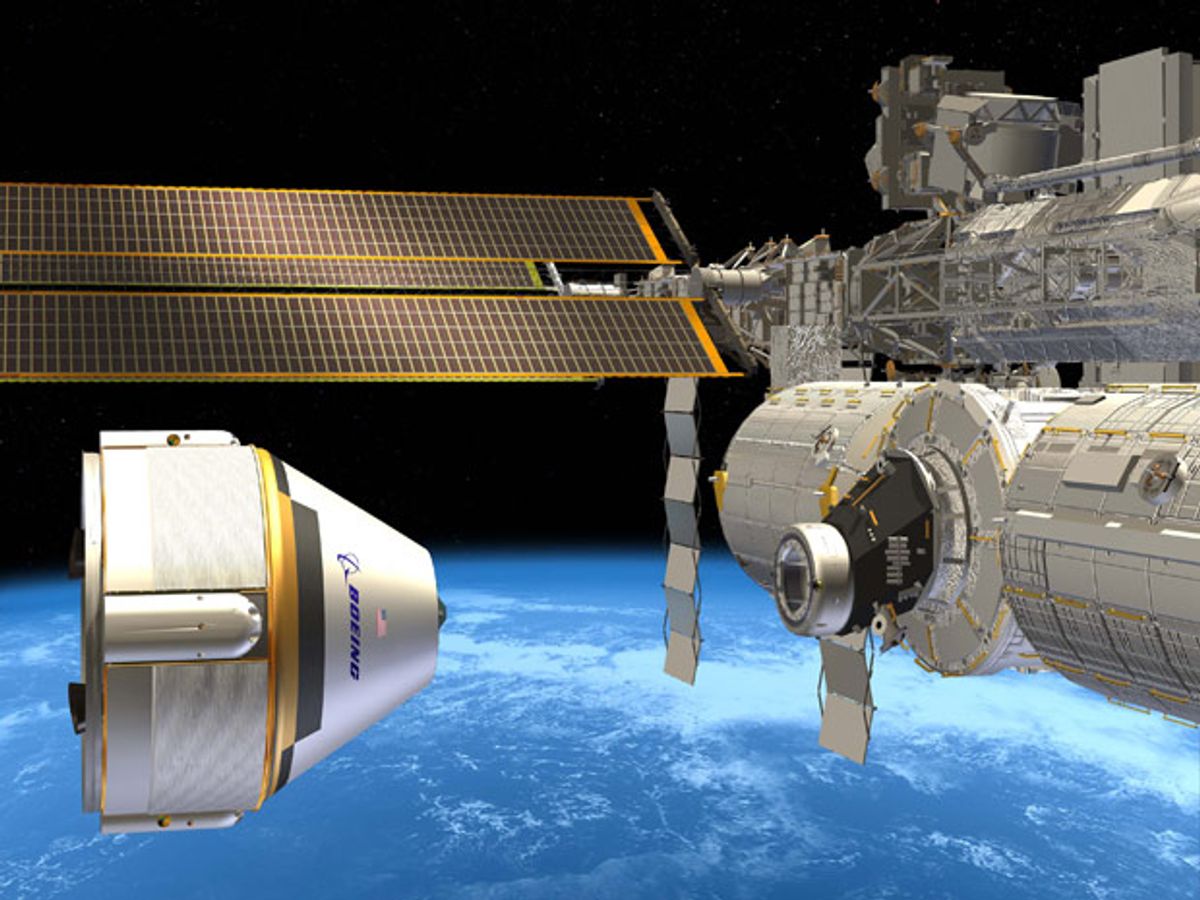NASA has taken a big step toward restoring U.S. space launch capabilities for human astronauts by awarding a total of $6.8 billion in commercial crew contracts to Boeing and SpaceX. The move comes at a time when some U.S. lawmakers have been urging NASA to reduce its current reliance on Russian rockets to send astronauts to the International Space Station.
The NASA contracts awarded $4.2 to Boeing for building the CST-100 spacecraft, and $2.6 billion to SpaceX for completing the Dragon 2 spacecraft. According to Air & Space Magazine, the companies, having completed the spacecraft, will be required to launch at least one successful test mission with a NASA astronaut in order to become eligible for as many as six operational flights, with each flight containing up to seven NASA or international astronauts. By splitting the contracts, NASA appears to be maximizing its options by betting on Boeing's decades of experience and SpaceX's impressive performance over the past decade as a relative newcomer in the space industry.
Success on the part of the private space taxi services would likely allow the space agency to abandon the current system of buying rides for its astronauts on Russian Soyuz rockets to reach the space station. That arrangement has come under scrutiny by members of Congress in the wake of rising tensions between the West and Russia over the Ukrainian crisis. NASA has already suspended many of its ties with Russia, even as it continues to work with the Russian space agency (Roscosmos) to maintain space station operations.
Many industry and government experts had already expected Boeing to win the lion's share of NASA's commercial contracts, says the Wall Street Journal. The news publication interviewed experts who cited Boeing's greater experience as a NASA contractor and the aerospace giant's consistency in meeting earlier development goals on time and on budget. On the other hand, said one Wall Street Journal source, SpaceX did not fulfill all of the critical design requirements.
A third company, the Sierra Nevada Corporation, has been developing its Dream Chaser spacecraft designed to launch aboard a rocket and land like an aircraft on a runway. SNC had also been considered a final contender alongside Boeing and SpaceX for NASA's latest commercial crew contracts, but did not receive a contract—in part because SNC had intended to use the same Atlas V rockets as Boeing. The Wall Street Journal reports that NASA wanted at least two different rocket options, which is why the U.S. space agency favored SpaceX, with its Falcon rockets, over SNC's proposal.
Boeing had originally been lobbying Congress in pursuit of the entire NASA to award rather than one of two separate contracts. Still, some journalists took to Twitter to question the difference in the size of Boeing's and SpaceX's contracts. NASA officials said that the difference was a credit to SpaceX's demonstrated capability to act as a low-cost supplier.
In any case, this latest win for Boeing helps further cement the aerospace giant's prominence in NASA's future human spaceflight program. In July, the company finalized a $2.8 billion contract with NASA to provide the core stage for the U.S. space agency's new Space Launch System—what could be the most powerful rocket ever built. The SLS rocket is envisioned as NASA's first vehicle for taking humans beyond Earth orbit since the Saturn V rocket used in the Apollo moon program of the 1960s and 1970s.
But it's not certain that that promise will be fulfilled. According to the Wall Street Journal, many lawmakers have argued that NASA's current commercial spacecraft development budget of $700 million may be inadequate in the future.
Jeremy Hsu has been working as a science and technology journalist in New York City since 2008. He has written on subjects as diverse as supercomputing and wearable electronics for IEEE Spectrum. When he’s not trying to wrap his head around the latest quantum computing news for Spectrum, he also contributes to a variety of publications such as Scientific American, Discover, Popular Science, and others. He is a graduate of New York University’s Science, Health & Environmental Reporting Program.



